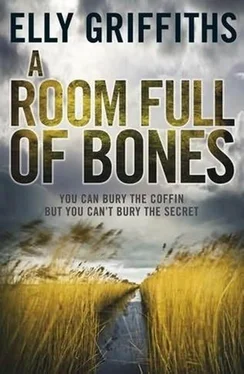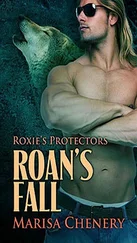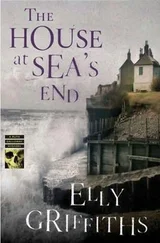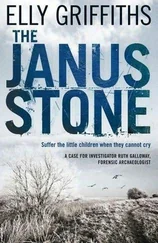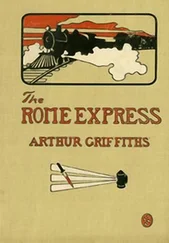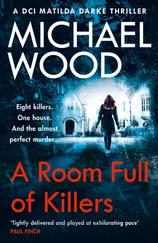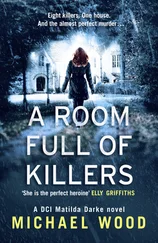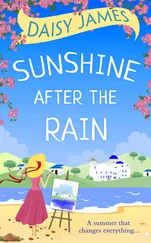‘Morning all.’
Smith does not turn round but plunges the cafetière with unnecessary violence.
‘What time do you call this?’ he says.
‘I don’t know,’ says the man pleasantly. ‘What time do you call it?’
‘You’ve been out all night. Your mother was worried sick.’
‘I doubt that,’ says the man who must, surely, be the errant Randolph. ‘Ma never worries about anything. Ah, coffee. Superb. I could murder a cup.’ He turns and seems to register Nelson for the first time.
‘Hallo there,’ he says. ‘I’m Randolph Smith.’
‘DCI Nelson.’
‘DCI Nelson’s come to talk to me about Neil’s death,’ says Danforth, speaking loudly and clearly as if to someone deaf or deficient in understanding. It’s almost as if he wants to convey a message. Or a warning. Nelson watches Randolph with interest. For a second he looks wary – almost scared – then the cheerful unconcern is back in place.
‘Oh, the mysterious death at the museum. Does the detective suspect foul play?’
‘It’s not a laughing matter’ says Danforth Smith reprovingly.
‘No.’ Randolph rearranges his handsome features. ‘Desperately sad. Poor Neil.’
‘Yes indeed,’ says Smith, putting cafetière and dark green cups on a tray. ‘I’ve written to his parents of course. And we should all attend the funeral.’
‘Will it be here or in Wales?’
‘I’ve no idea,’ says Smith. ‘We’ll take our coffee into the study, Detective Inspector.’
Nelson follows Lord Smith out of the room, wondering how Randolph Smith knows that Neil Topham’s family comes from Wales.
Smith ushers Nelson into a luxurious study with sofa, drinks cabinet and vast mahogany desk. The walls are lined with shelves containing leatherbound volumes and plastic files. In the occasional clear space, there are photos of horses, some standing in fields, some sweaty and magnificent after winning a race. A glass cabinet is crammed full of trophies.
‘Do you have children, Detective Chief Inspector?’ asks Smith, seating himself behind the desk.
‘Two daughters,’ says Nelson, sitting in the proffered visitor’s chair, which swivels rather alarmingly. He hates saying this; it feels as if he is denying Katie. At least he sent her a birthday present, he thinks. He couldn’t bear to let the day go completely unnoticed.
‘Daughters are easier. My two girls have never given me a day’s trouble. Caroline you saw. She’s a real hard worker. Tamsin’s a lawyer, lives in London, husband, two children. But Randolph! He hasn’t done a day’s work since leaving university. Caroline’s travelled all over, seen the world. All Randolph seems to see is the inside of night clubs. And he drinks with the most dreadful people…’ He stops himself with an effort. ‘Still, you don’t want to hear about my domestic problems.’
‘It must be hard work, running an operation like this.’
‘Bloody hard work. Up at five every day. The horses have holidays but we don’t.’
‘Do you have much time left for the museum?’
Smith’s face becomes serious. ‘Not as much time as I’d like. I left all the day-to-day running to Neil. Poor chap.’ He looks up and meets Nelson’s eyes. ‘Have you discovered anything about how he died?’
‘Earliest indications suggest that death was the result of pulmonary haemorrhage,’ says Nelson cautiously. Is it his imagination or does Danforth Smith relax slightly?
‘How ghastly. Did he have weak lungs?’
‘We won’t know until we’ve looked at his medical records but it’s quite possible. But I wanted to talk to you about another matter.’
‘Yes?’ Smith leans forward across the acres of polished wood. His tone is one of polite interest but Nelson notices that one hand is clenched tightly around a fountain pen. As Nelson watches, Smith seems consciously to relax his grip, letting the pen roll across the desk.
‘Yes,’ says Nelson. ‘Were you aware of any letters sent to Neil Topham?’
‘Letters?’
‘Threatening letters.’
Nelson places a file on the desk. He takes out some loose papers and pushes them towards Danforth Smith, who puts on a pair of half-moon glasses and peers at the hand-written pages. Nelson watches him intently. At first Smith seems to show only polite interest then something makes him look harder. It’s almost a classic double take. What has Lord Smith seen in the letters that surprises him so much? Nelson continues to watch as, once again, Smith seems deliberately to calm himself. When he speaks, his voice is completely steady.
‘Where did you get these?’
‘From Neil Topham’s desk. Have you seen them before?’
There are three letters in total. The first is dated August 2009:
To whom it may concern,
You have something that belongs to us, something that belongs to the spirit ancestors. If you do not return it, you are violating the harmony of the spirit world. Remember that the spirits are strong and can exact revenge. I advise you to think carefully about your actions. Every event leaves a record on the land and, if you continue to disrespect our dead, your life may well be in danger.
In the brotherhood of the spirit.
The second letter is dated September 2009:
You have chosen to disregard our first warning. In your arrogance you think you can ignore the wrong that you have done to us but the spirits are everywhere and they see all and know all. You cannot escape. The spirits cry out for vengeance. If you persist in defying us, the wrath of the Great Spirit will destroy you. Consider carefully.
The third letter is dated October and reads simply:
You have ignored our requests. Now you will suffer the consequences. You have violated our dead. Now the dead will be revenged on you. We will come for you. We will come for you in the Dreaming.
Nelson looks at Smith, who has taken off his glasses and is rubbing his nose.
‘Lord Smith, have you any idea who sent these?’
Smith says nothing. Outside a horse neighs and a woman laughs. The silver cups glint in the autumn sun.
‘We have some heads,’ says Lord Smith at last. ‘At the museum.’
‘Heads?’
‘Aborigine skulls. They were originally acquired by my great-grandfather. We used to have them on display but now they’re kept locked up. About a year ago I got a letter from a group calling themselves the Elginists. They demanded the return of the skulls. Said they should go back to Australia and be buried in their ancestral ground… said they needed to enter Dreamtime, or some such rubbish. I gave them short shrift. Those heads belonged to my great-grandfather. They’re very rare. One’s been turned into a water carrier. I couldn’t just turn them over to some bunch of nutters. I mean, these artefacts are valuable, they need special care.’
‘Have you still got the letter?’
‘I don’t know. I’ll look.’ Smith gets up and starts to search in a steel filing cabinet. What is it filed under, wonders Nelson. N for Nutter? I for Ignore?
‘Here it is.’ Smith puts a single sheet of paper in front of Nelson.
This letter looks very different from the missives found in Neil Topham’s desk. It’s typewritten for one thing and is on actual headed notepaper, with a logo that seems to represent the moon above a meandering river.
Dear Lord Smith,
We are writing on behalf of the Elginists, a group dedicated to the repatriation of sacred artefacts. It has come to our attention that your museum currently holds four Indigenous Australian skulls which have been forcibly removed from their ancestral ground. As you may know, it is an important tenet of Indigenous Australian belief that the remains of the ancestors should be returned to Mother Earth so that they may enter the Dreaming and so complete the cycle of nature. We respectfully request that you return these skulls, which were unlawfully removed and which, therefore, can only bring bad fortune to you and your family. Be warned that the Great Snake will have its revenge.
Читать дальше
